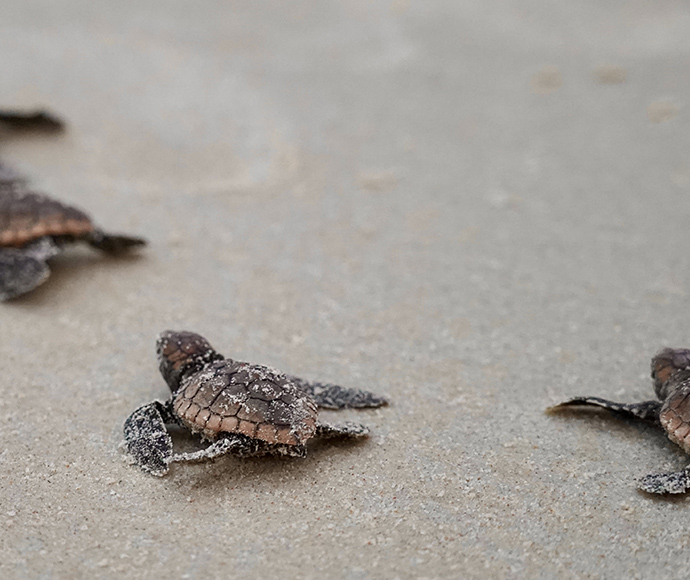Sea-lovers urged to help to save sea turtles this nesting season
Beachgoers from the Tweed area to Wollongong are being asked to keep an eye out for sea turtles as the 2023 nesting season kicks off.
NSW TurtleWatch's Project Officer Merryn Dunleavy said as warmer temperatures coax more people to NSW beaches, walkers, surfers, and swimmers should be aware that they might be sharing the beach with a nesting sea turtle.
"Green and loggerhead turtles are listed as threatened species and are heavily impacted by threats including climate change, so it is important to do what we can to protect each and every nest," said Ms Dunleavy.
"As you hit the shores this season, we're asking you to be the eyes and ears for these gentle giants.
"If you're at the beach and spot sea turtle tracks or, even more exciting, discover a nest, please take lots of photos and call NSW TurtleWatch immediately on 0447 877 149 or the NSW National Parks and Wildlife Service (NPWS) on 1300 072 757.
"It is important that the nests are not interfered with, by people or dogs, so early detection is vital to ensure the protection of these precious nests and the future generation of sea turtles snuggled within," said Ms Dunleavy.
The 2022–23 nesting season saw three sea turtle nests laid outside the generally recognised nesting range, with nests recorded at Hawks Nest, Bateau Bay and Wollongong.
"We traditionally see successful nesting activities from the Tweed to Forster Tuncurry," said Ms Dunleavy.
"If this southern nesting trend continues, we'll need more volunteer citizen scientists than ever before to canvass this large expanse of coastline and report any turtle nest activities.
"Reporting a turtle nest can be the difference between life and death for sea turtle eggs.
"Turtle nests are vulnerable to a range of threats including predation, high tides, and erosion. The sooner we are notified, the quicker we can get down to the beach and physically protect and monitor the nest until it hatches," said Ms Dunleavy.
Anyone can be a citizen scientist and help protect sea turtles and their hatchlings. All you need to do is:
- walk your local beach early in the morning, as sea turtles generally nest during the night.
- keep your eyes peeled for any tracks in the sand, which are usually 80–100 cm wide and can sometimes be mistaken for tire tracks.
- take your phone with you so you can quickly call NSW TurtleWatch or NPWS if you see any signs of turtles, tracks or a nest.
NSW TurtleWatch has been developed by Australian Seabird and Turtle Rescue and is proudly funded by the NSW Government.
Images for media: Dropbox
